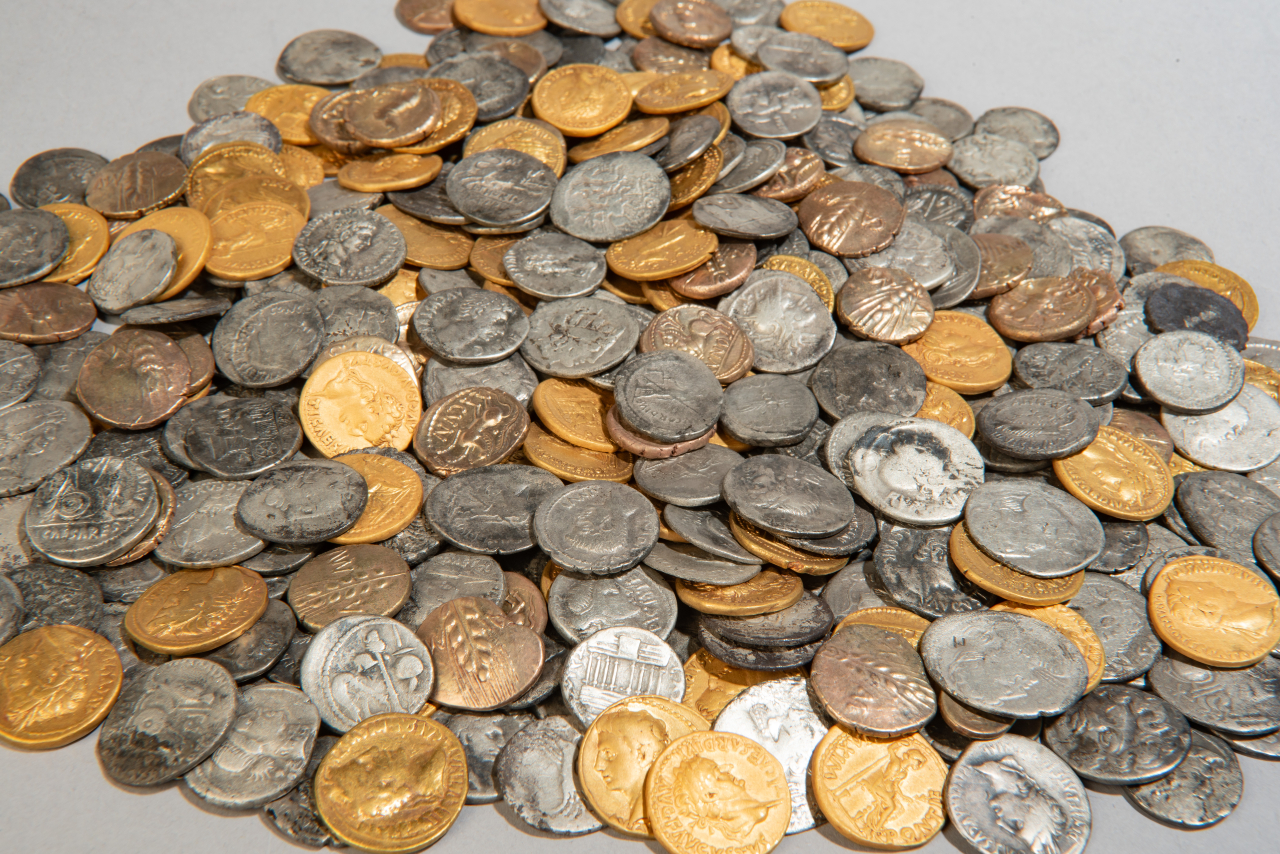“Unique” haul of Roman and British coins found near Utrecht

A haul of more than 400 coins from the early Roman era has been discovered by two metal detector enthusiasts near Utrecht.
The gold and silver pieces date from 46 AD and include 44 coins bearing the name of the Celtic king Cunobeline, who ruled parts of southern Britain just before the Roman conquest.
The National Museum of Antiquities (Rijksmuseum van Oudheden) in Leiden described the find as a “unique combination of Roman and British coins” and said it was the first such haul on the European mainland.
Other pieces show the likeness of the Roman emperor Claudius and the north African king Juba I, whose kingdom was in present-day Algeria.
The site where the coins were unearthed lay at the northern border of the Roman empire, known as the Lower German Limes. The British coins are likely to have been taken by soldiers during expeditions across the North Sea.
Cunobeline was known as “King of the Britons” in his time and is thought to have been a client king of the Roman emperor Augustus, based on the use of the title Rex on his coins. He is the subject of the play Cymbeline by William Shakespeare.
The coins were found in October 2023 and taken to the local heritage and conservation body Landschap Erfgoed Utrecht, where they were examined by an archaeologist and restored for public display.
They were then bought by the Leiden museum, which is displaying them in its exhibition Nederland in de Romeinse Tijd from January 27.
Thank you for donating to DutchNews.nl.
We could not provide the Dutch News service, and keep it free of charge, without the generous support of our readers. Your donations allow us to report on issues you tell us matter, and provide you with a summary of the most important Dutch news each day.
Make a donation